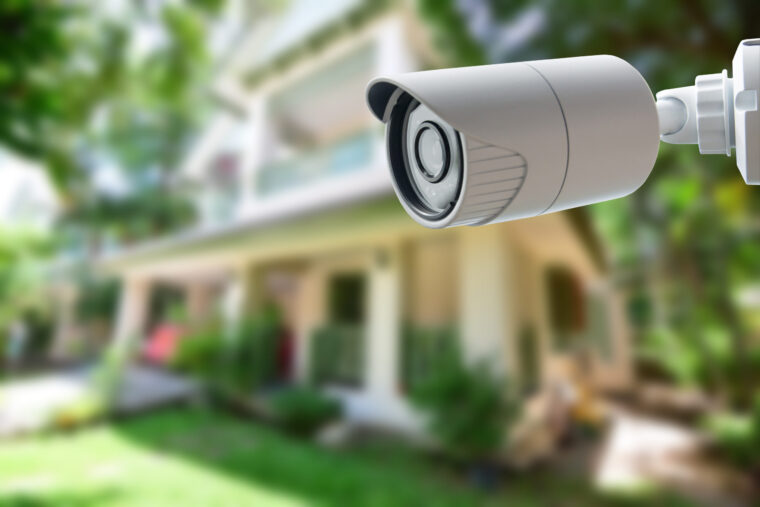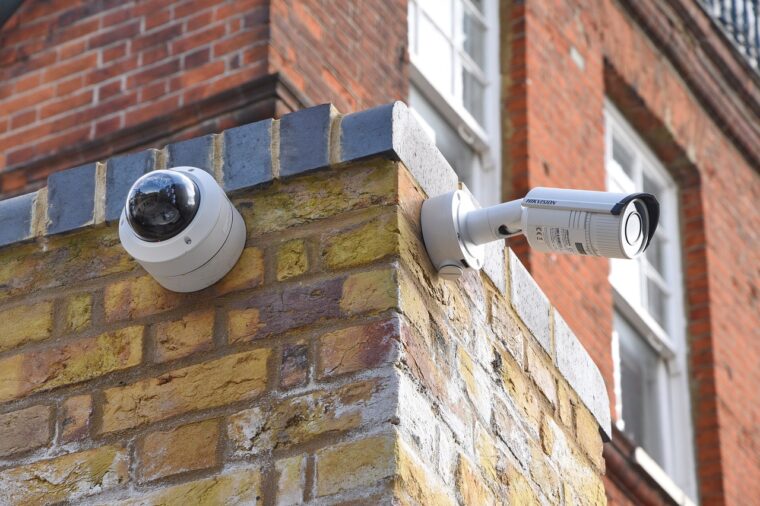In today’s rapidly evolving world, ensuring the safety and security of our homes has become more important than ever. One effective way to achieve this is by installing a reliable security camera system that provides round-the-clock surveillance.
However, with the multitude of options available, choosing the right system can be overwhelming.
In this article, we will guide you through the process of selecting the ideal security camera system for your home, considering vital factors and providing expert tips for installation and placement.
Importance of a Home Security Camera

One of the primary reasons to install a home security camera is to enhance the overall safety and protection of your property. Home security cameras serve as a deterrent to potential burglars and provide valuable evidence in the event of a crime.
However, it is important to address privacy concerns when installing these cameras. It is crucial to inform neighbors and ensure that the cameras do not invade their privacy.
Additionally, it is essential to choose a system that offers remote monitoring capabilities. This allows homeowners to view live footage and receive notifications on their smartphones or computers, providing them with peace of mind even when they are away from home.
Remote monitoring capabilities give homeowners the ability to keep a close eye on their property at all times, ensuring maximum security and protection.
Types of Security Camera Systems
When considering a security camera system for your home, it is important to understand the different types available and their respective features.
One key feature to consider is night vision capabilities, which allow cameras to capture clear footage even in low-light conditions. This is particularly important for outdoor cameras that need to monitor your property at night.
Another consideration is whether to opt for a wireless or wired system. Wireless cameras offer flexibility in terms of placement and ease of installation, as they do not require extensive wiring.
On the other hand, wired cameras provide a more reliable and secure connection, as they are not susceptible to interference or signal loss.
Ultimately, the choice between wireless and wired options depends on your specific needs and preferences.
Factors to Consider Before Buying

To make an informed decision on purchasing a security camera system for your home, there are two essential factors to consider.
Firstly, budget considerations are crucial in determining the type and quality of security camera system you can afford. It is important to set a realistic budget and research the options available within that budget range. This will help you prioritize your needs and make an informed decision.
Secondly, integration with smart home technology is becoming increasingly popular. Integrating your security camera system with smart home devices allows you to control and monitor your cameras remotely, receive real-time alerts, and even automate certain actions. It is important to choose a system that is compatible with your existing smart home devices or one that offers the features you desire.
Installation and Placement Tips
Installing and placing security cameras in strategic locations is crucial for maximizing their effectiveness in monitoring your home. Proper installation techniques and camera positioning strategies are essential to ensure comprehensive coverage and accurate surveillance.
When installing security cameras, consider the areas that require monitoring the most, such as entry points, driveways, and backyard. Position the cameras at a height that provides a clear view of the area without being easily tampered with. Avoid placing cameras in direct sunlight or facing reflective surfaces to prevent glare and image distortion.
Additionally, ensure that the cameras are installed securely to prevent tampering or theft. Regularly check the cameras’ angles and adjust them if needed to maintain optimal coverage.
Best Security Camera Systems for Home Use

Choosing the most effective security camera system for home use requires careful consideration of various factors to ensure optimal surveillance.
One of the key decisions to make is whether to go for wireless or wired security cameras. Wireless cameras offer the advantage of easy installation and flexibility in terms of placement, as they do not require any wiring. On the other hand, wired cameras provide a more stable and reliable connection, ensuring uninterrupted monitoring.
Another factor to consider is whether to opt for indoor or outdoor security camera systems. Indoor cameras are designed to monitor the inside of your home and are typically smaller and more discreet. Outdoor cameras, on the other hand, are built to withstand the elements and provide surveillance for the exterior of your property.
Ultimately, the best security camera system for your home will depend on your specific needs and preferences.
Frequently Asked Questions
How Can I Ensure That My Security Camera Footage Is Secure and Not Accessible by Unauthorized Individuals?
To ensure the security of your security camera footage and prevent unauthorized access, it is crucial to invest in a system that offers secure storage and encryption. This will protect your data from being compromised and accessed by unauthorized individuals.
Are There Any Legal Regulations or Restrictions Regarding the Use of Security Cameras in Residential Areas?
Legal restrictions and privacy concerns are important factors to consider when installing security cameras in residential areas. It is crucial to understand and comply with local laws and regulations to ensure the protection of privacy rights of individuals.
Can Security Cameras Be Used to Monitor Both the Interior and Exterior of My Home?
Yes, security cameras can be used to monitor both the interior and exterior of your home. By using security cameras for home automation, you can integrate them with smart home systems for enhanced monitoring and control.
What Are the Advantages and Disadvantages of Wired Versus Wireless Security Camera Systems?
The advantages of wired security camera systems include a more stable connection and higher video quality, while the disadvantages include installation complexity and limited flexibility. Wireless systems offer easy installation and flexibility, but may suffer from signal interference and lower video quality.
Are There Any Additional Features or Technologies That I Should Consider When Choosing a Security Camera System for My Home?
When choosing a security camera system for your home, it is important to consider advanced motion detection capabilities and integration with smart home automation systems. These features enhance the overall security and convenience of your home surveillance.
